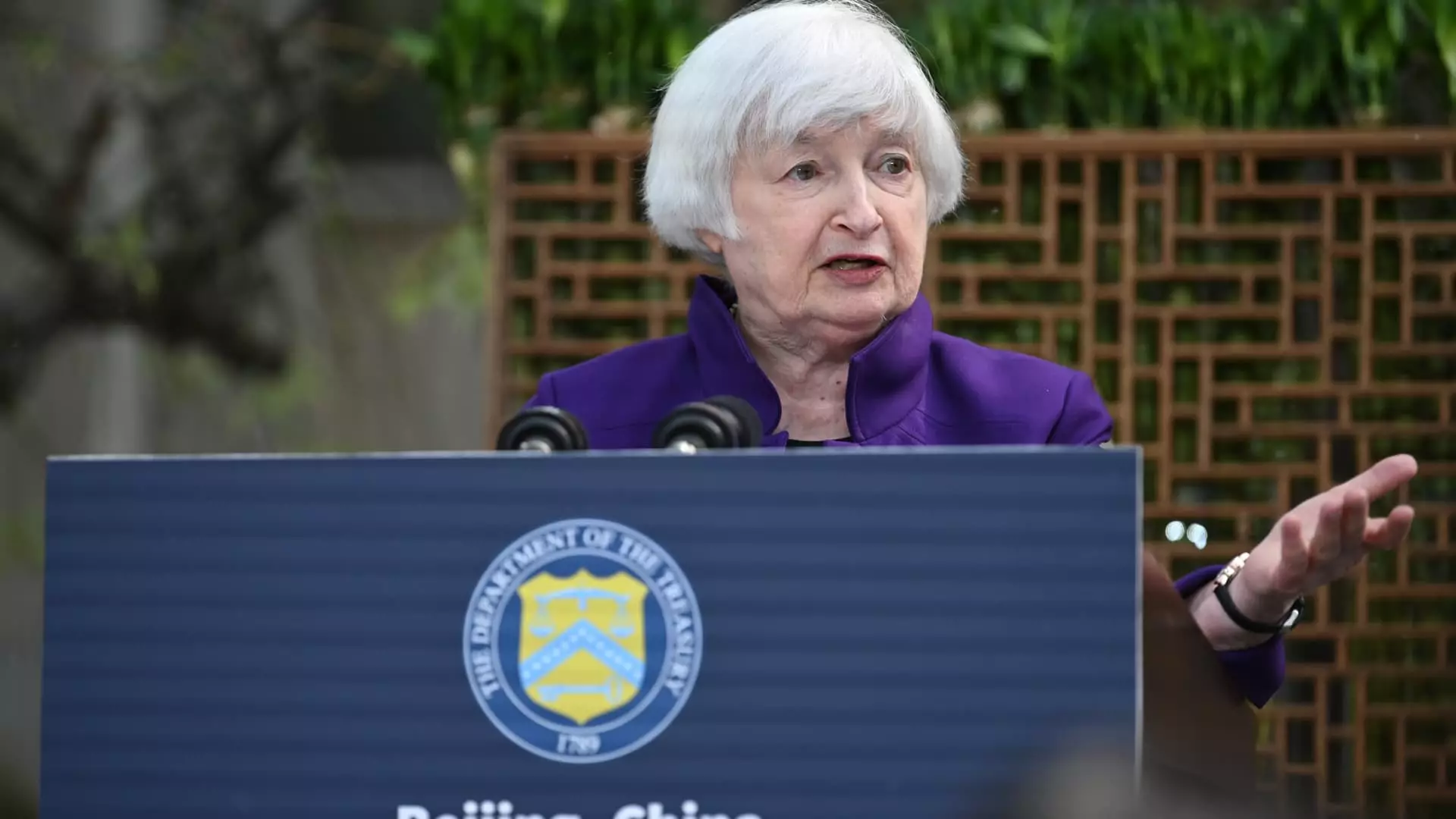In a bold statement, U.S. Treasury Secretary Janet Yellen made it clear that the United States is ready to impose sanctions on Chinese banks, companies, and even Beijing’s leadership if they assist Russia in its invasion of Ukraine. Yellen emphasized that any form of support to Russia’s military operations in Ukraine would be deemed unacceptable by the United States, and that they have the capability to impose sanctions if necessary.
President Joe Biden had issued an executive order in December granting the Treasury Secretary the authority to sanction financial institutions that aid Russia’s military-industrial complex. While Yellen mentioned that this tool has not been utilized yet, the warning to China serves as a clear indication that the United States is prepared to take action if deemed necessary.
Yellen acknowledged that China is entitled to have a relationship with Russia, citing that a significant portion of trade between the two countries is considered nonproblematic by the U.S. However, the provision of military assistance from Beijing to Moscow could trigger sanctions according to the Treasury Secretary. Yellen’s visit to China included meetings with officials such as Vice Premier He Lifeng, highlighting the seriousness of the economic message she was tasked with delivering.
One of the key issues raised by Yellen during her visit was the Chinese overcapacity in the green energy industry, specifically in areas such as solar panels, electric vehicles, and lithium-ion batteries. The U.S. has raised concerns about Chinese government subsidies for these products, claiming that they have far exceeded domestic demand. Yellen warned that if Chinese manufacturers cannot sell their surplus products domestically, they may resort to dumping them in global markets, potentially harming other companies.
The overcapacity issue is just one of the many trade tensions that have characterized the relationship between the United States and China in recent years. Former President Donald Trump’s tariffs in 2017 put a strain on economic cooperation between the two countries, a move that Biden has continued during his term. The threat of higher tariffs on Chinese imports remains a possibility if China fails to address U.S. concerns over issues like overcapacity.
Despite the ongoing trade tensions and warnings of sanctions, efforts have been made to thaw relations between the United States and China. Biden’s meeting with Chinese President Xi Jinping in November aimed to reestablish high-level communications between the two governments. Yellen expressed optimism about the current state of the economic relationship between the two countries, suggesting that progress has been made compared to a year ago.
The United States remains vigilant in its stance against countries that aid Russia in its military operations, and China has been warned of potential sanctions if it supports Moscow in the conflict with Ukraine. The issue of overcapacity in the green energy industry and other trade tensions also continues to pose challenges to the U.S.-China economic relationship. Despite these challenges, efforts to improve communication and cooperation between the two countries are ongoing, with hopes of creating a more stable and balanced economic partnership.

Leave a Reply